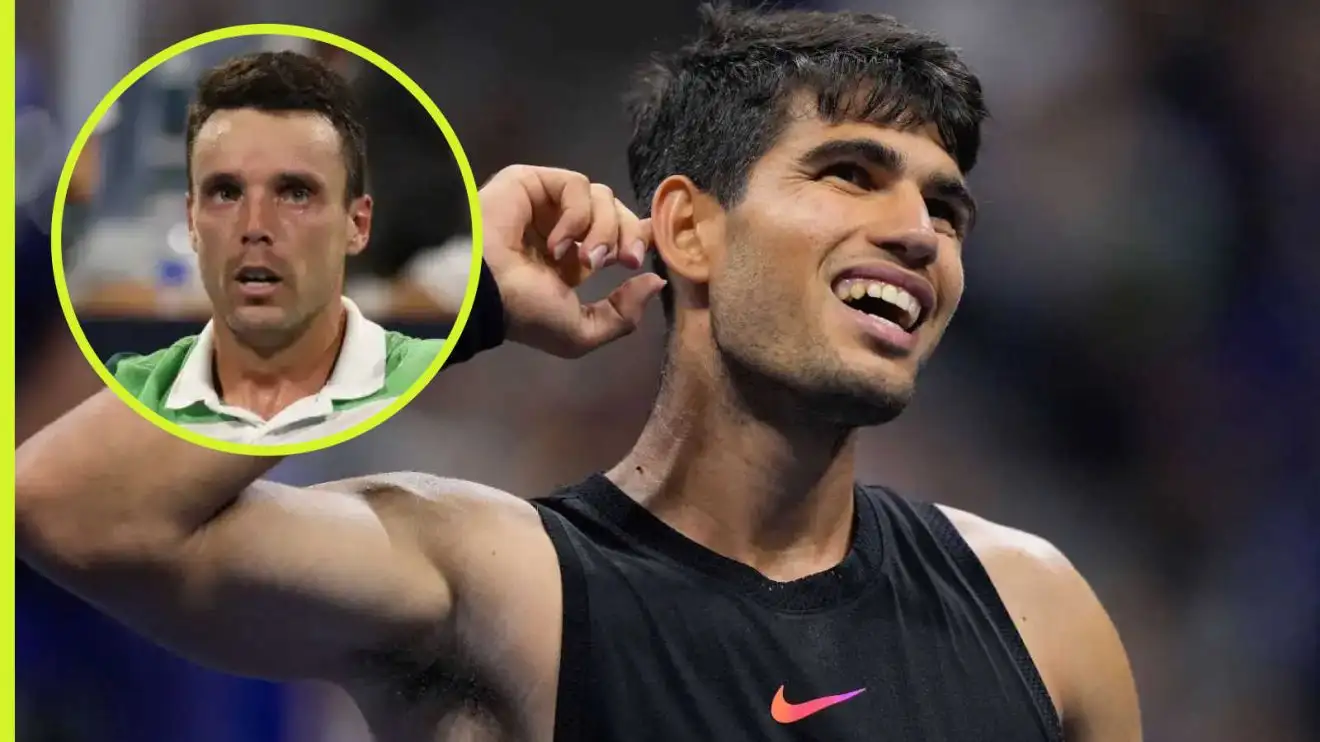
At just 21, Carlos Alcaraz has already cemented his status as a tennis superstar, with four Grand Slam titles and a meteoric rise to the world’s elite. However, his recent candid revelations about his off-court antics have ignited a firestorm in the tennis world, drawing a stern warning from a fellow Spaniard about the potential risks to his glittering career. In a newly released Netflix documentary, Carlos Alcaraz: My Way, the young champion admitted to indulging in wild nights of partying in Ibiza before his triumphant 2023 Wimbledon campaign, a confession that has raised eyebrows and prompted veteran Roberto Bautista Agut to caution, “I don’t think Carlos will win Grand Slams by going to bed at seven in the morning.”
Alcaraz’s journey to tennis stardom has been nothing short of remarkable. Bursting onto the scene as a teenager, he clinched his first Grand Slam at the 2022 US Open at age 19, becoming the youngest world No. 1 in ATP history. Since then, he’s added the 2023 and 2024 Wimbledon titles and the 2024 French Open to his resume, establishing himself as the heir apparent to legends like Rafael Nadal. But with great success comes immense pressure, and Alcaraz’s recent admissions reveal the challenges of balancing his youth with the demands of professional tennis.
In the Netflix series, Alcaraz recounts how, after a disappointing 2023 French Open semifinal loss to Novak Djokovic, he defied his team’s advice and jetted off to Ibiza for a hard-partying getaway. “I wanted to go there basically to just get wasted,” he admitted, describing the trip as a much-needed escape. “I made the most of it because I knew I might not get another three days like that.” Surprisingly, the break seemed to recharge him, as he returned to win the Queen’s Club Championships and his first Wimbledon title weeks later. He repeated the Ibiza ritual in 2024, again preceding a successful Wimbledon title defense, though his fitness coach labeled the move “selfish” and his coach, Juan Carlos Ferrero, questioned his dedication to matching the longevity of Djokovic or Nadal.
The revelations, timed with the release of the documentary during a hectic promotional week for the Madrid Open, have stirred debate. While Alcaraz’s candor has endeared him to fans who admire his authenticity, it’s drawn criticism from peers who see his approach as risky. Bautista Agut, a former top-10 player known for his disciplined approach, didn’t hold back. “I believe that top-level tennis demands a lot,” he told reporters. “I don’t think Carlos will win Grand Slams by going to bed at seven in the morning.” His warning underscores the grueling nature of the sport, where physical and mental endurance are as critical as talent.
The timing of the controversy couldn’t be worse for Alcaraz, who withdrew from the Madrid Open due to a right leg injury, compounding concerns after a loss in the Barcelona Open final to Holger Rune. The injuries, which include a hamstring issue and a right leg abductor problem, have forced him to prioritize recovery ahead of the French Open, where he aims to defend his title. “Tennis is really a demanding sport,” Alcaraz said, reflecting on the tight schedule that contributed to his injuries. “Playing week after week, so many matches in a row, and you have to heal your body sometimes and take difficult decisions.”
Fans and analysts are divided. Some celebrate Alcaraz’s ability to thrive despite his unconventional approach, pointing to his 10-1 record in Grand Slam and Masters 1000 finals as proof of his resilience. Others worry that his party-heavy lifestyle could jeopardize his longevity, especially as he faces mounting expectations to overtake world No. 1 Jannik Sinner and cement his legacy. Social media buzz reflects the split, with one fan posting, “Carlitos living his best life and still winning Slams—legend!” while another cautioned, “He’s gotta chill with the partying or he’ll burn out before 25.”
As Alcaraz eyes the clay season, including a potential return at the Italian Open before Roland Garros, the spotlight on his off-court choices intensifies. His ability to balance youthful exuberance with the discipline required to dominate tennis will define his future. For now, he remains defiant, focusing on his recovery and his passion for the game. “I want to do it my way,” he declared in the documentary, a mantra that encapsulates both his brilliance and the risks he’s willing to take. Whether his Ibiza escapades become a footnote or a cautionary tale remains to be seen, but one thing is certain: Carlos Alcaraz’s journey is as captivating off the court as it is on it.
Leave a Reply